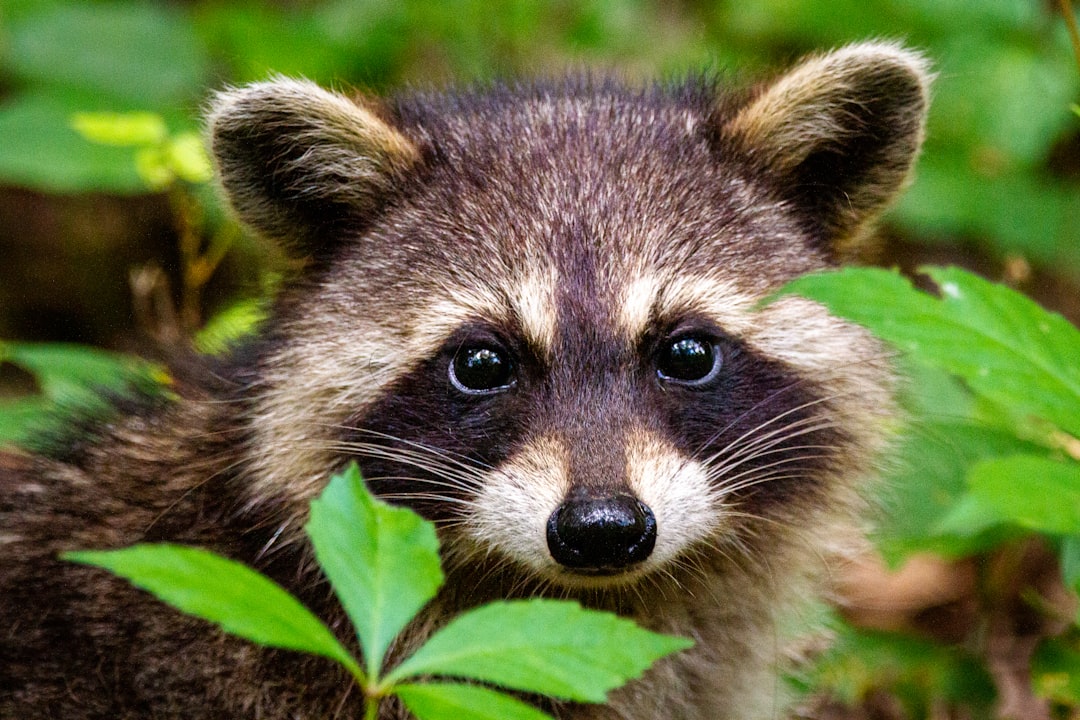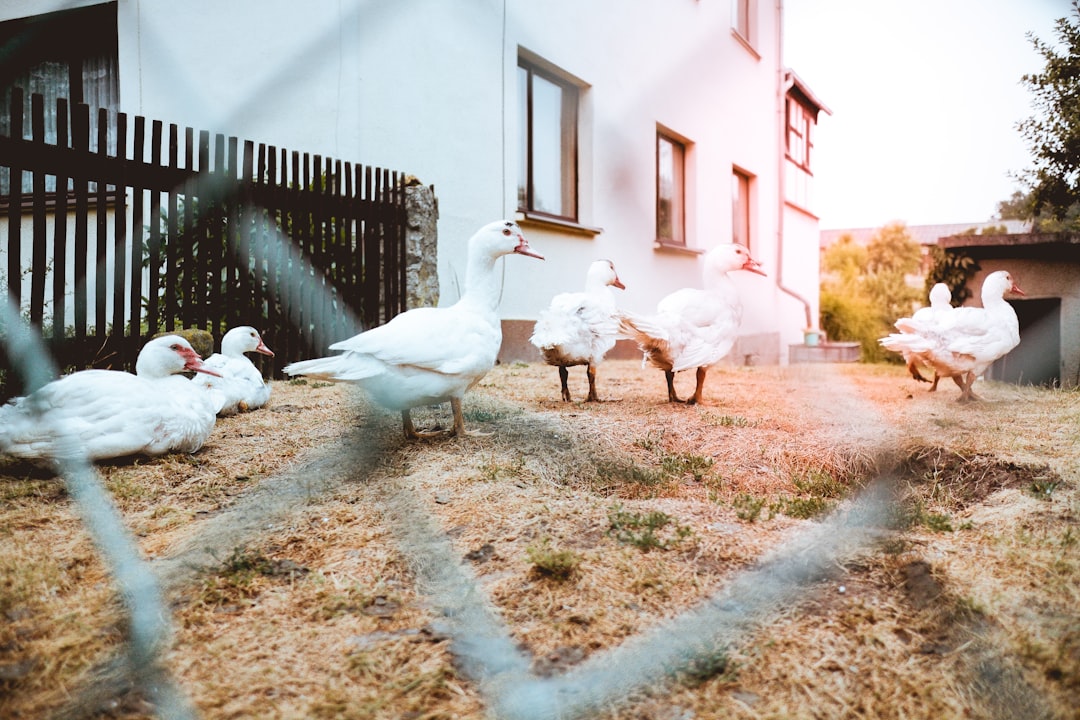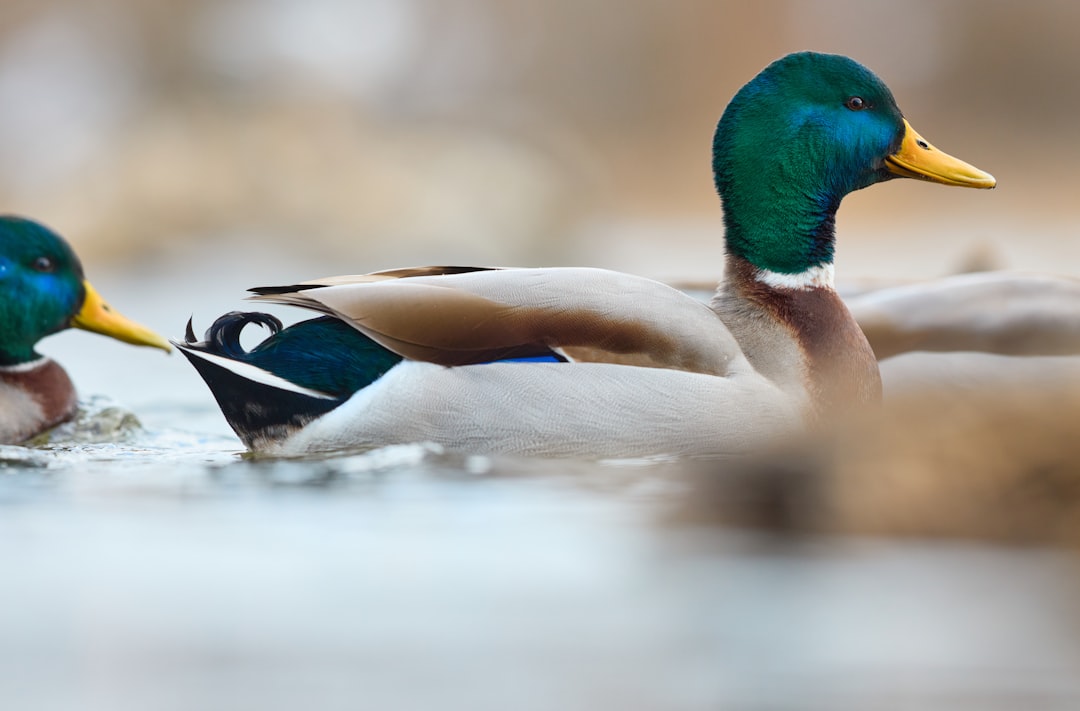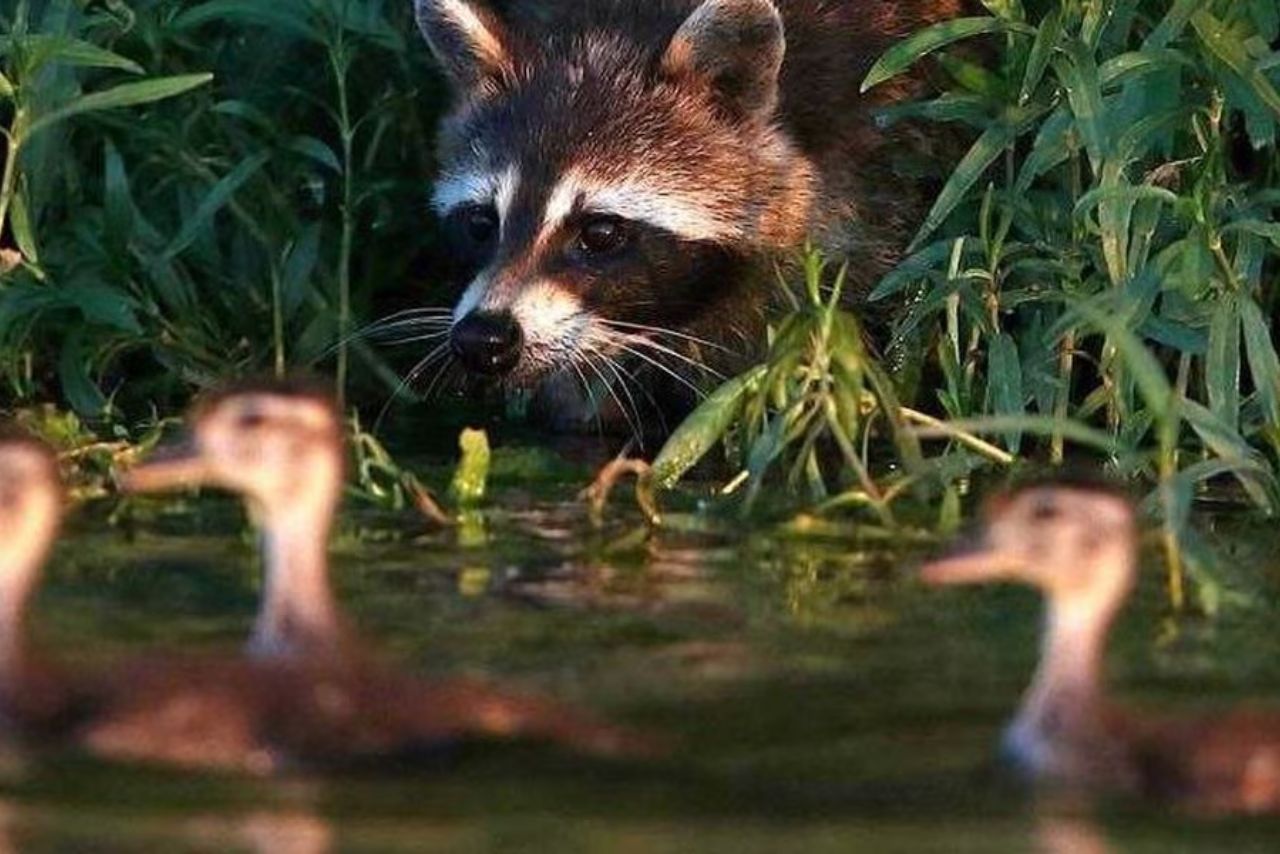Ducks are delightful and fascinating creatures to have on a farm or in your backyard, but they are also vulnerable to predators such as raccoons.
Raccoons are known to be notorious predators of ducks, and they can cause significant harm to your flock if left unchecked.
As a responsible duck owner, it is essential to take measures to protect your ducks from raccoons to ensure their safety and well-being.
In this article, we will provide you with some effective tips on how to protect your ducks from raccoons and keep them safe from harm.
So, How To Protect Ducks From Raccoons? To protect ducks from raccoons, it is important to secure the duck coop with sturdy fencing and locks.
Additionally, keeping the area around the coop clear of debris and food sources can discourage raccoons from approaching.
Motion-activated lights and sound deterrents can also be effective in deterring raccoons.
It is important to regularly inspect and reinforce the coop’s security measures to ensure the safety of the ducks.
Properly protecting ducks from raccoons can help prevent potential loss and harm to the flock.
What Are Raccoons? (Skilled Climbers)
Raccoons are nocturnal and “opportunistic predators” that are attracted to food sources.
They are known to be “skilled climbers”, so it is important to ensure that the duck coop is not easily accessible from trees or other structures.

Additionally, placing a wired mesh floor in the coop can prevent raccoons from digging underneath and gaining access.
It is important to remember that prevention is key when it comes to protecting ducks from raccoons.
Regularly inspecting the coop and surrounding area for signs of potential entry points or food sources can help prevent raccoon attacks.
Understanding The Threat Of Raccoons
Understanding the threat of raccoons is crucial for duck owners. These predators can cause significant harm to ducks, and they are known to be persistent in their attempts to access food sources.
By taking proactive steps to protect your flock, you can prevent potential loss and harm.
By following the tips outlined in this article, you can ensure that your ducks have a happy and healthy life free from the threat of raccoons.
Ways To Protect Ducks From Raccoons
Here’s a listicle of 5 ways to protect ducks from raccoons:
1. Secure the duck coop:
Make sure the duck coop is secure and raccoon-proof.
Use hardware cloth or welded wire mesh to cover all openings, including windows and doors. Also, use a sturdy lock to keep the door securely closed at night.
2. Install motion-activated lights:
Raccoons are nocturnal, and they prefer to hunt in the dark.
Install motion-activated lights around the duck coop to deter raccoons from approaching.
3. Use predator deterrents:
There are various predator deterrents available in the market, such as sprinklers, motion-activated alarms, and decoys.
These products can help scare off raccoons and keep them away from the ducks.
4. Don’t leave food out:
Raccoons are attracted to food, especially pet food and birdseed.
Don’t leave any food out overnight, and make sure the duck food is stored in a secure container.
5. Keep the area clean:
Raccoons are attracted to cluttered and messy areas.
Keep the area around the duck coop clean and tidy to discourage raccoons from hanging around. Remove any fallen leaves, brush, and debris regularly.
Building A Secure Enclosure For Your Ducks
Building a secure enclosure for your ducks is crucial in protecting them from predators such as raccoons.

The enclosure should be constructed with sturdy materials such as wood and wire mesh to ensure the safety of the ducks.
It should also be spacious enough to allow the ducks to move around freely.
When building an enclosure, it is important to consider the location carefully.
The area should be free from potential threats such as trees or structures that could provide raccoons with access to the coop.
Additionally, it should be well-drained and not prone to flooding.
It is essential to regularly inspect and maintain the enclosure’s security measures, including locks and fencing.
This will help ensure that there are no weak spots that raccoons can exploit.
Do Ducks Attract Raccoons?
While ducks themselves do not necessarily attract raccoons, their food and water sources certainly can.
Raccoons are opportunistic predators, and they are attracted to areas where they can find easy access to food and water.
Therefore, it is important for duck owners to keep their feeding and watering areas clean and tidy.
Additionally, duck owners should be cautious about feeding their ducks at night as this may attract raccoons.
Instead, it is recommended to feed ducks during the day and remove any leftover food before dusk.
To further reduce the risk of attracting raccoons, duck owners can also plant prickly bushes or install a low-voltage electric fence around the perimeter of their property.
Do Raccoons Eat Ducks?
Raccoons are omnivores, and they eat a variety of foods, including small animals like ducks.
They can cause significant harm to a duck flock if given the opportunity.
By taking proactive steps to protect your ducks from raccoons, you can prevent potential loss and harm.
Natural Remedies Keep Racoons Away
4 Natural Remedies to Keep Raccoons Away from Your Property are as under:
1. Use Cayenne Pepper:
Raccoons have a sensitive sense of smell, and cayenne pepper is a natural deterrent for them.
Sprinkle cayenne pepper around the perimeter of your property, or mix it with water and spray it on your garbage cans.
2. Use Ammonia:
Raccoons hate the smell of ammonia. Soak rags in ammonia and place them in areas where raccoons are likely to visit, such as around your garbage cans.
3. Plant Mint:
Raccoons don’t like the smell of mint. Plant mint around your property, or crush mint leaves and scatter them around your garbage cans.
4. Use a Radio:
Raccoons are scared of human voices, so leaving a radio on overnight can keep them away. Tune the radio to a talk show or news station to create the illusion of people talking.
Does Human Urine Keep Raccoons Away?
Another natural remedy to keep raccoons away is human urine. The scent of human urine is said to repel raccoons as they associate it with the presence of humans.
Place small cups of urine around the perimeter of your property or near areas where raccoons are likely to visit, such as around your garbage cans.
Do Raccoons Smell Bad?
While raccoons are known for their distinctive musky odor, this does not necessarily mean that they smell bad to other animals or humans.
However, their strong scent can serve as a warning sign that raccoons may be in the area and potentially pose a threat to your ducks.
In addition to the preventive measures and natural remedies mentioned above, it is important for duck owners to regularly inspect their enclosures and surrounding areas for signs of raccoon activity.
These signs may include footprints, droppings, or damage to the enclosure.
Can A Racoon Kill A Full Grown Duck?
Yes, raccoons are capable of killing full-grown ducks. They are known to attack and kill small animals like chickens, ducks, and other birds.

This is why it is important for duck owners to take proactive measures to protect their flock from these predators.
Implementing the preventive measures mentioned above, such as installing motion-activated lights and using predator deterrents can help keep raccoons away from your property.
Additionally, building a secure enclosure for your ducks can provide them with a safe and protected environment where they can thrive.
Do Raccoons Come Out During The Day?
Raccoons are mainly nocturnal animals, but they can also be active during the day, especially if they are hungry or searching for food.
It is not uncommon to see raccoons during the daytime; however, if you notice a raccoon out and about during the day and exhibiting odd behavior such as staggering, it may be a sign of rabies.
In such cases, it is important to stay away from the animal and contact animal control or a wildlife removal service immediately.
Do Raccoons Mess With Ducks?
Yes, raccoons are known to attack and kill small animals such as ducks and other birds.
They can also cause damage to the enclosure by digging or chewing their way through it.
This is why it is important for duck owners to take preventive measures and protect their ducks from these predators.
In addition to the natural remedies mentioned earlier, there are other ways to deter raccoons from messing with your ducks.
One of these is installing a motion-activated sprinkler system that will startle the raccoons when they approach the enclosure.
Wrap Up:
How To Protect Ducks From Raccoons? Protecting your ducks from raccoons is crucial to ensure their safety and well-being.
Implementing preventive measures such as natural remedies, predator deterrents, and building a secure enclosure can go a long way in keeping raccoons away from your property.
Regularly inspecting the enclosure for any signs of damage or activity and taking immediate action if you suspect a threat can prevent further harm to your ducks.
Remember that raccoons are intelligent animals and can find ways around deterrents when determined enough.
Therefore, it’s important to remain vigilant against potential threats at all times.
FAQs
What are some natural remedies to keep raccoons away from ducks?
Cayenne pepper and ammonia are natural remedies that can deter raccoons from approaching your duck enclosure.
Can raccoons attack full-grown ducks?
Answer: Yes, raccoons are known to attack and kill small animals such as ducks.
Do raccoons come out during the day?
Raccoons are mainly nocturnal animals, but they can also be active during the day, especially if they are hungry or searching for food.
How can I prevent raccoons from digging under the duck enclosure?
Installing predator-proof netting over the enclosure or burying hardware cloth around its perimeter can prevent raccoons from digging underneath.
What should I do if I suspect raccoons are present near my duck enclosure?
Contacting a professional wildlife removal service or setting humane traps to relocate the raccoons away from your property can prevent further harm to your ducks.




